Readiness to Change: Conversion & the Christian Life
12th Annual Summer Seminar
June 27 – July 2, 2022
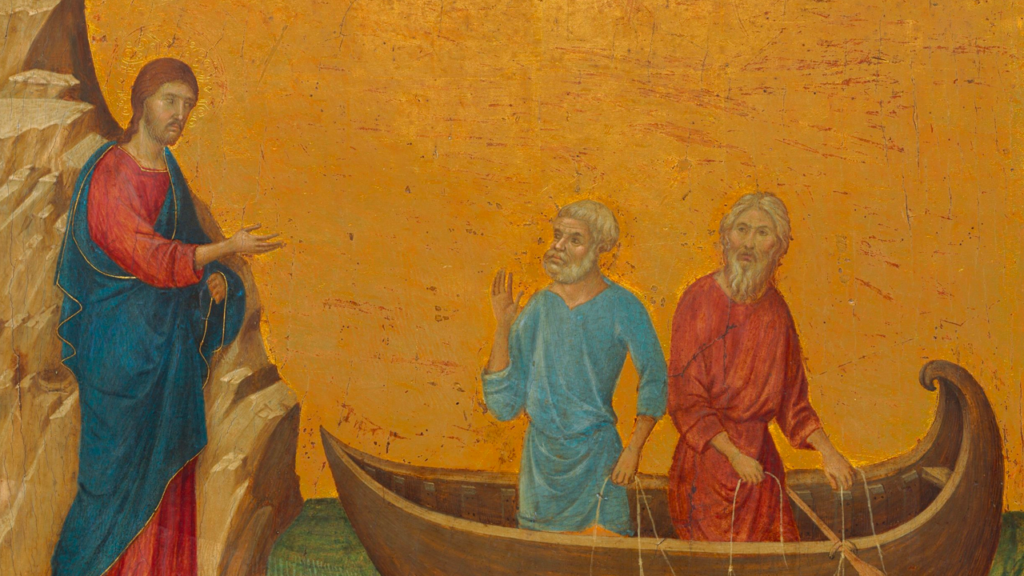
The aspiring man of natural morality is intent on eradicating this defect, on acquiring that virtue; the Christian, however, is intent on becoming another man in all things, in regard to both what is bad and what is naturally good in him.
Dietrich von Hildebrand
Transformation in Christ
The 2022 Hildebrand Project Summer Seminar “Readiness to Change: Conversion & Christian Life” was an exploration into the spiritual work of Dietrich von Hildebrand, taking its title from a chapter of the same name in Hildebrand’s religious masterpiece, Transformation in Christ. Here, we took the opportunity to situate the wisdom of that text within his larger philosophical framework, especially the fundamental attitudes found in The Art of Living. Our faculty and participants discussed how his phenomenological insights elucidate the great religious aspects of faith, reverence, and conversion.
We also put Hildebrand’s work into dialogue with the perennial tradition. Romano Guardini, Edith Stein, Plato, Augustine, St. Benedict, and St. Ignatius all became interlocutors, bringing to light the great truths Hildebrand spoke of in new and exciting ways.
Below, you will find videos of the entire seminar. Watching them, we hope you are both engaged and challenged.
Readiness to Change – Videos
Readiness to Change (Hildebrand Project Summer Seminar 2022: Readiness to Change)
Panel #1: Readiness to Change, featuring Dr. Mark Spencer, Dr. Maria Wolter, and Dr. Jim Beauregard. Readiness to Change: Conversion & the ...
Reverence and Humility (Hildebrand Project Summer Seminar 2022: Readiness to Change)
Panel #2: Reverence and Humility, featuring Dr. John F. Crosby, Dr. Beth Rath, and Dr. Elisa Grimi. Readiness to Change: Conversion & the ...
Faithfulness (Hildebrand Project Summer Seminar 2022: Readiness to Change)
Panel #3: Faithfulness, featuring Dr. Elizabeth Shaw, Dr. Martin Cajthaml, and Hrvoje Vargic. Readiness to Change: Conversion & the Christian ...
Recollection and Contemplation (Hildebrand Project Summer Seminar 2022: Readiness to Change)
Panel #4: Recollection and Contemplation, featuring Dr. Mark Spencer, Dr. Dan Sheffler, and Dr. Jim Beauregard. Readiness to Change: Conversion & ...
Confidence in God (Hildebrand Project Summer Seminar 2022: Readiness to Change)
Panel #5: Confidence in God, featuring Dr. Robert McNamara, Dr. Beth Rath, and Dr. Elisa Grimi. Readiness to Change: Conversion & the Christian ...
Striving for Perfection (Hildebrand Project Summer Seminar 2022: Readiness to Change)
Panel #6: Striving for Perfection, featuring Dr. Maria Wolter, Dr. Matt Breuninger, and Fr. James Brent. Readiness to Change: Conversion & the ...
2022 Seminar Faculty
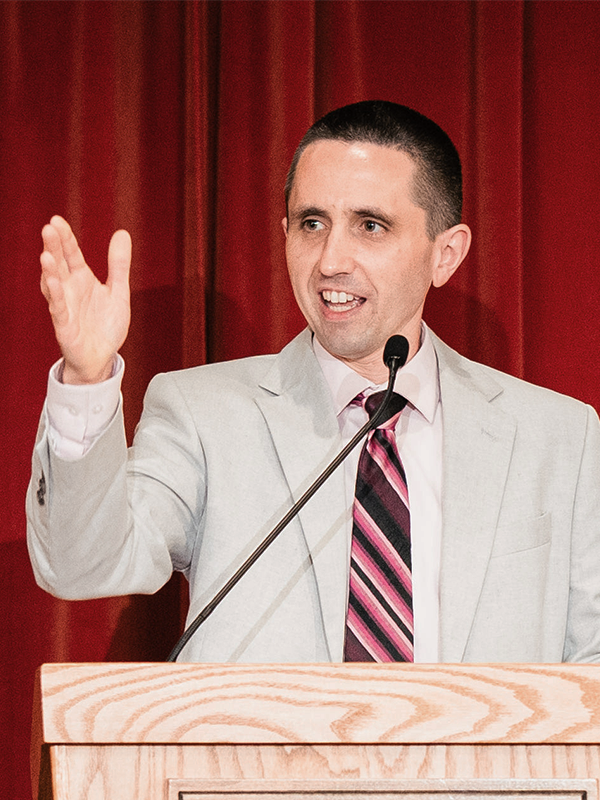
Mark K. Spencer
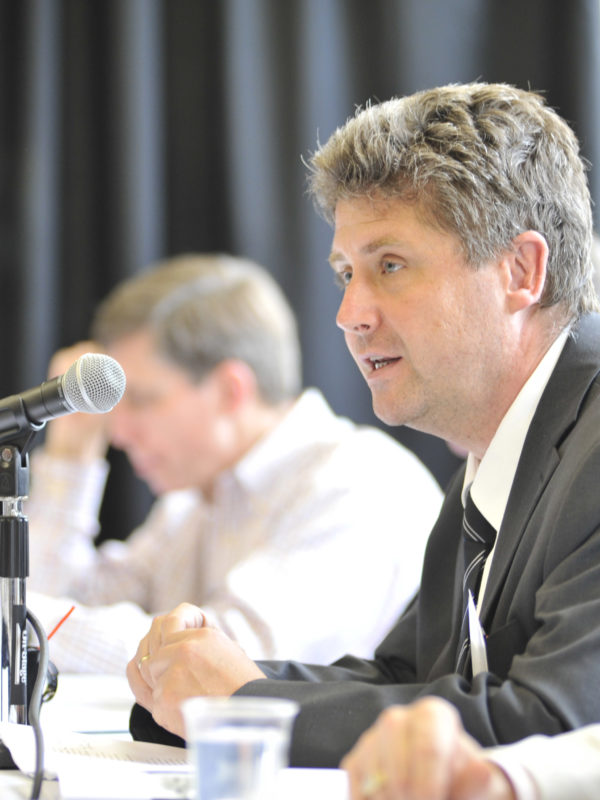
Martin Cajthaml
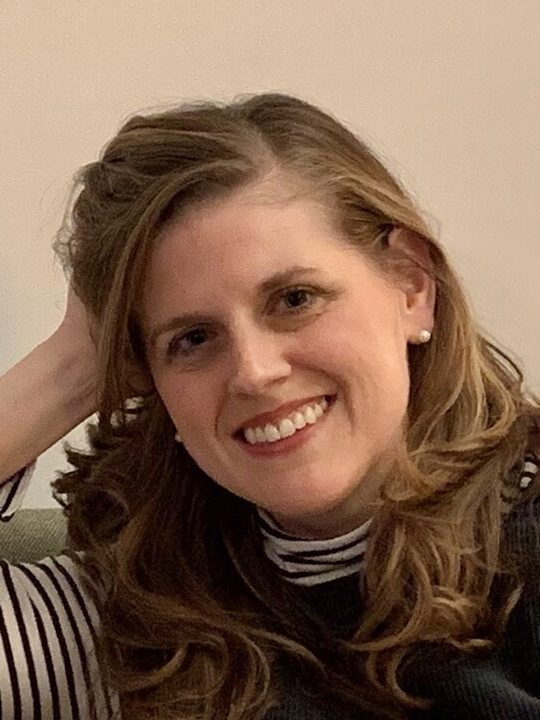
Beth A. Rath
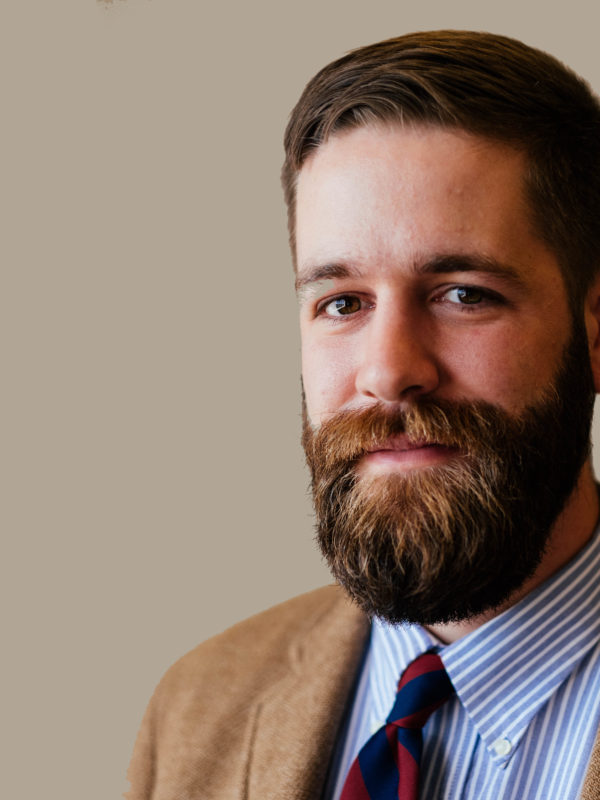
DT Sheffler
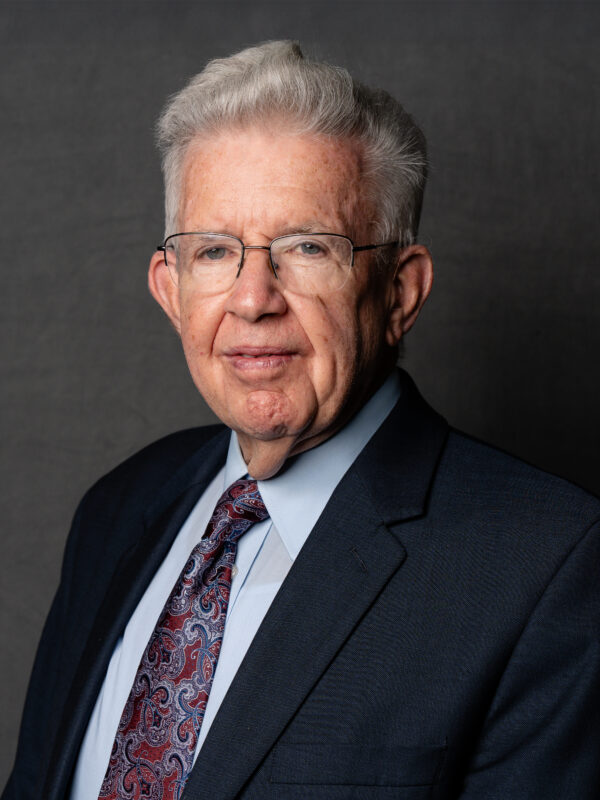
John F. Crosby
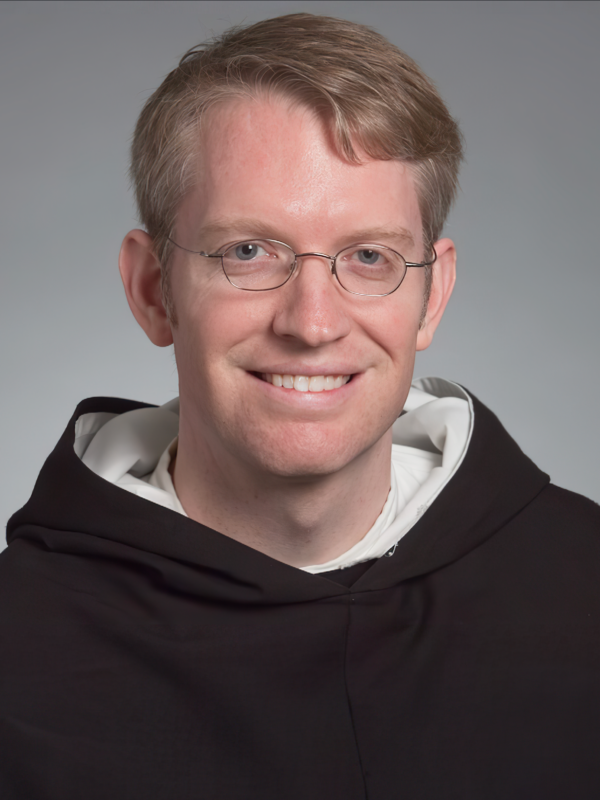
Fr. James Dominic Brent, O.P
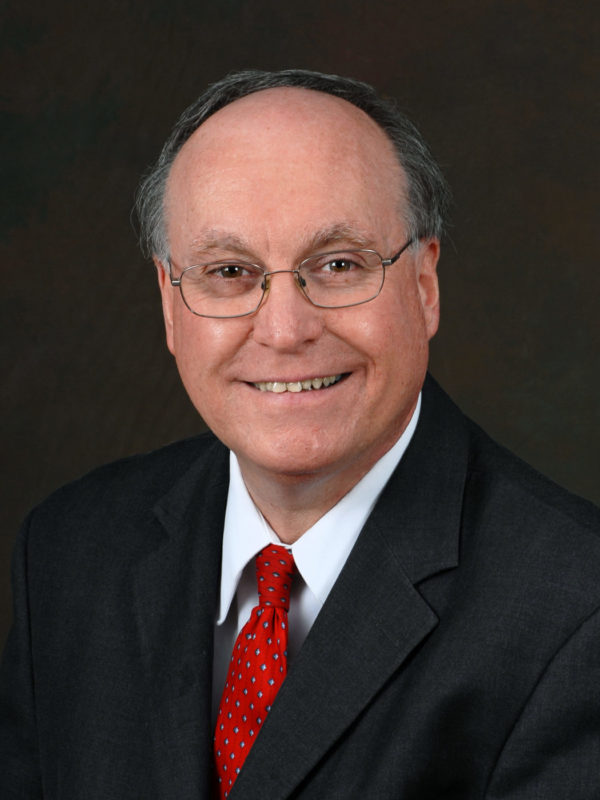
James Beauregard
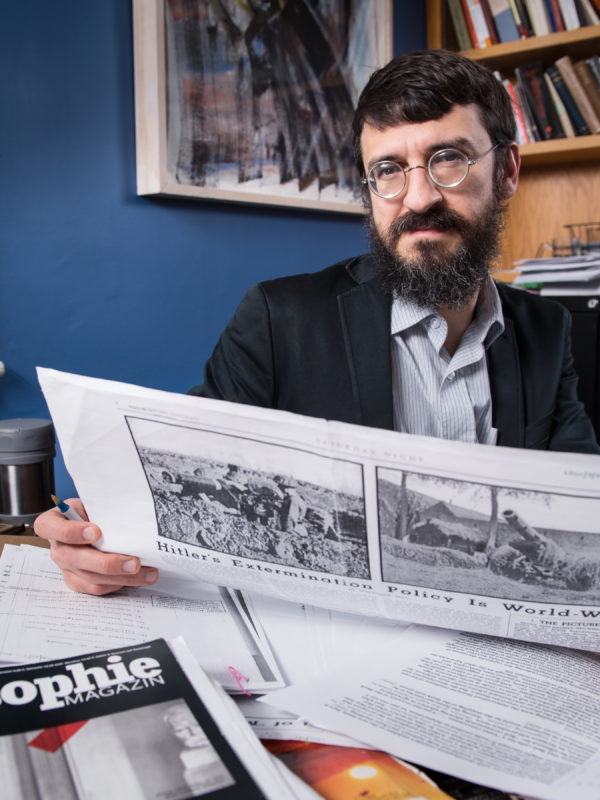
Jason Bell
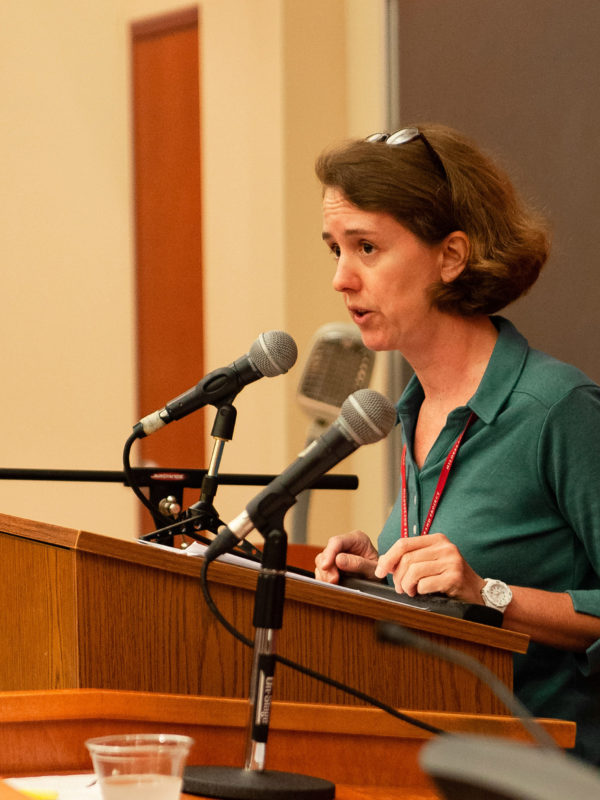
Elizabeth C. Shaw
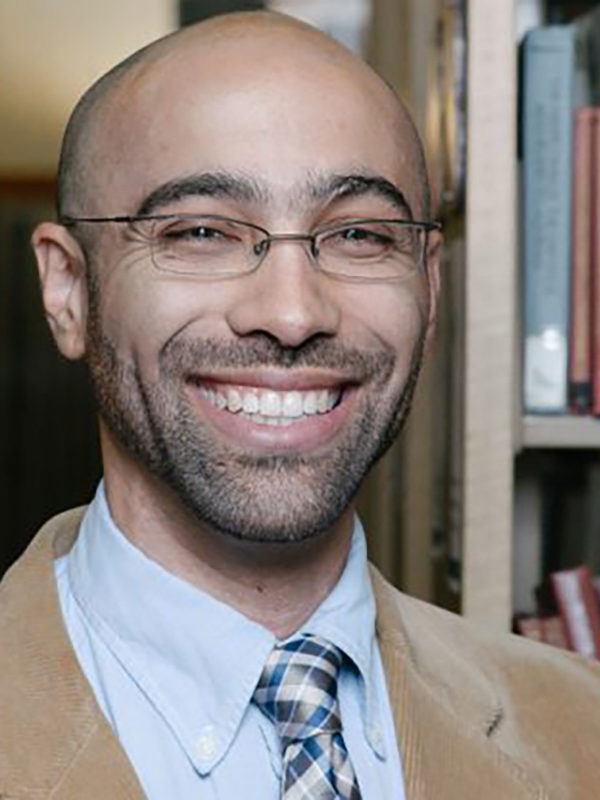
Matthew Breuninger
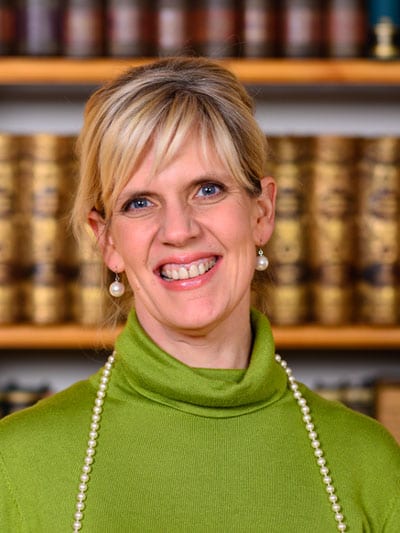
Maria Wolter
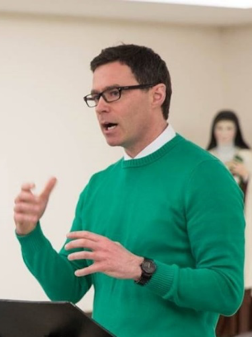
Robert McNamara
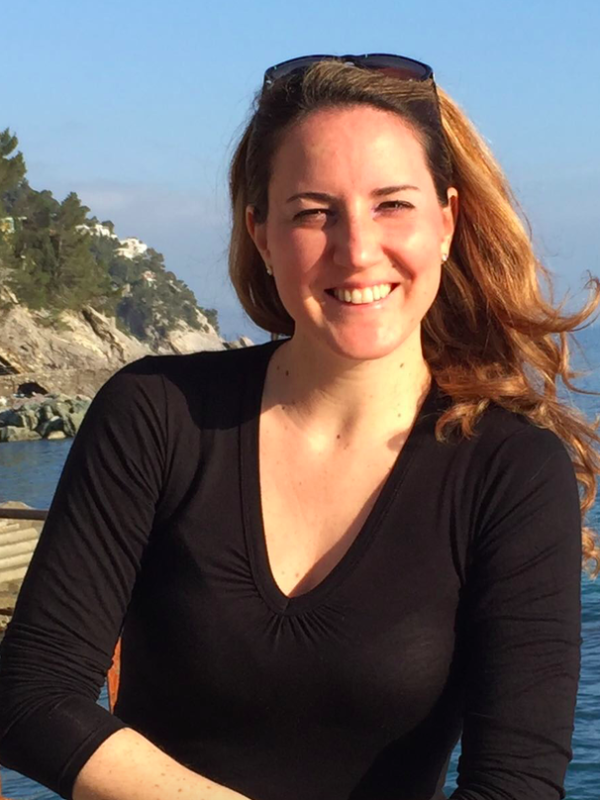
Elisa Grimi
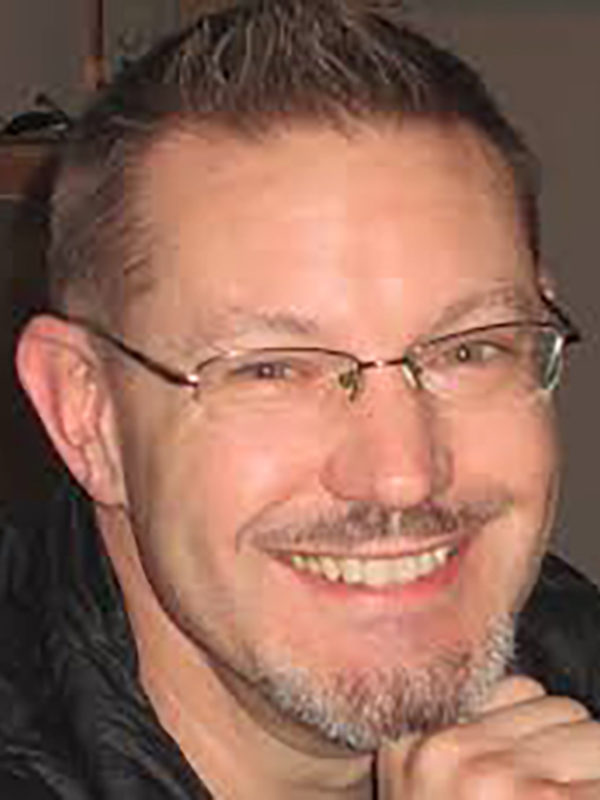
Aaron Preston
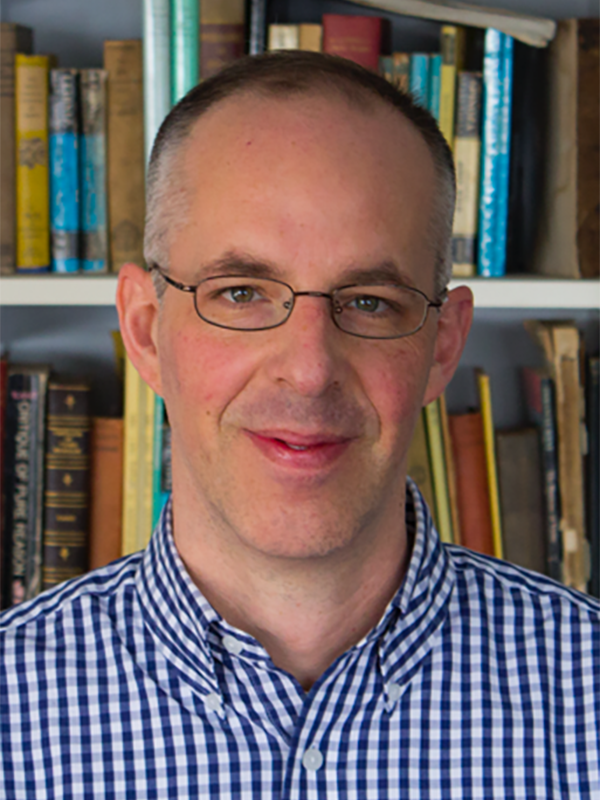
Walter Hopp
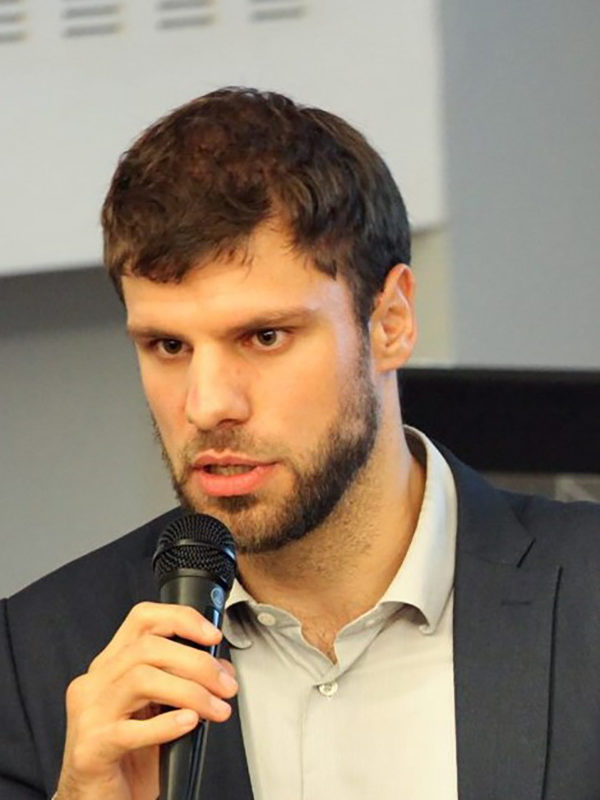
Hrvoje Vargić
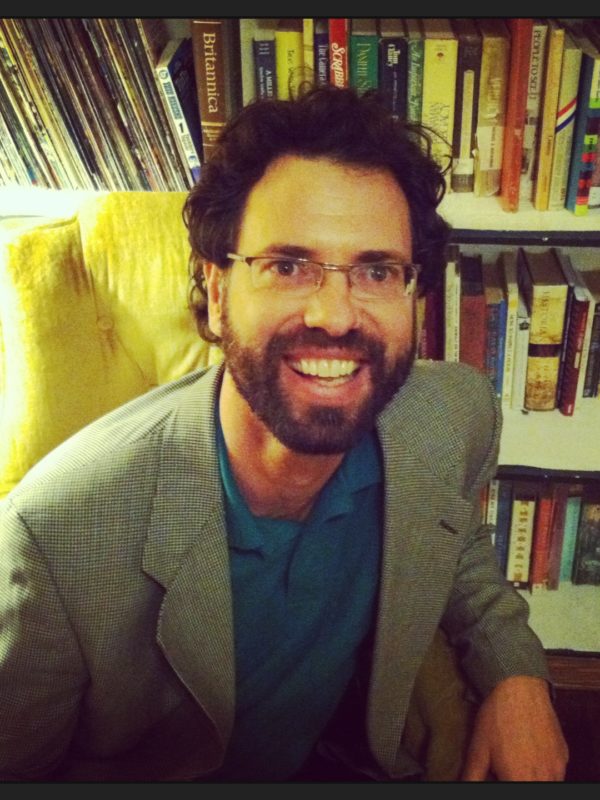
Alex Plato
Mark K. Spencer
University of St Thomas, MN Professor of Philosophy
Research Areas: Philosophical Anthropology, Aesthetics, Metaphysics, Philosophical Theology
Dr. Mark K. Spencer, Ph.D. is a Professor of philosophy at the University of St. Thomas in Minnesota. Spencer fell in love with philosophy in high school when he first encountered the writings of Albert Camus and St. Thomas Aquinas. He earned his Ph.D. from the University at Buffalo, and his M.A. and B.A. from Franciscan University of Steubenville, where he first encountered the work of Dietrich von Hildebrand. He is the author of 2 books and over 60 papers and reviews, mostly focusing on the nature of the human person, beauty, and God’s relations to us. In his research, he above all tries to synthesize many traditions’ approaches to these topics, drawing on the scholastic, phenomenological, analytic, and Greek Patristic traditions. Among the things he takes greatest delight in is introducing students to the insights of these traditions, so as to help them better perceive and contemplate reality, for which he finds the work of von Hildebrand an indispensable guide. He lives in St. Paul, Minnesota, with his wife, Susanna, and their four children. Together, they especially enjoy hiking, camping, reading novels, watching films, gardening, and homeschooling.
Select Bibliography
“Created Persons are Subsistent Relations: A Scholastic-Phenomenological Synthesis.” Proceedings of the American Catholic Philosophical Association 89, Analyzing Catholic Philosophy (2015): 225-243.
“Aristotelian Substance and Personalistic Subjectivity.” International Philosophical Quarterly 55:2 (June 2015): 145-164.
“Divine Causality and Created Freedom: A Thomistic Personalist View.” Nova et Vetera 14:3 (Summer 2016): 375-419.
“The Many Powers of the Human Soul: Von Hildebrand’s Contribution to Scholastic Philosophical Anthropology,” American Catholic Philosophical Quarterly 91:4, Special Issue on Dietrich Von Hildebrand (Fall 2017): 719-735.
“Perceiving the Image of God in the Whole Human Person,” The Saint Anselm Journal 13:2 (Spring 2018): 1-18.
“Sense Perception and the Flourishing of the Human Person in von Hildebrand and the Aristotelian Traditions,” Tópicos, Revista de Filosofía 56 (2019): 95-118.
“Beauty and Being in von Hildebrand and the Aristotelian Tradition,” The Review of Metaphysics 73:2 (December 2019): 311-334.
“Covenantal Metaphysics and Cosmological Metaphysics: An Aesthetic Critique and an Aesthetic Synthesis”, The Saint Anselm Journal 15:2 (Spring 2020): forthcoming.
“Beauty and the Intellectual Virtues in Aristotle,” in Beauty and the Good: Past Interpretations and Their Contemporary Relevance ed. Alice Ramos, (Washington: The Catholic University of America Press, 2020).
Martin Cajthaml
Cajthaml studied philosophy at the Faculty of Arts of the Charles University in Prague from 1991-1993. He went on to study philosophy and psychology at the International Academy of Philosophy in the Principality of Lichtenstein (IAP). In 2000, he earned his PhD in philosophy at the IAP with the dissertation Kritik des Relativismus. In 2000-2007 he worked as assistant-professor at the IAP. He is a full professor and the Head of the Department of Philosophy and Patrology at the Sts Cyril and Methodius Faculty of Theology of Palacky University Olomouc, Czech Republic.
Palacký University Olomouc
Associate Professor of Philosophy
Research Areas:
Philosophical Ethics; Intellectual and Spiritual Roots of European Culture; Value Theory
Select Bibliography
Cajthaml, M., Vohánka V. The Moral Philosophy of Dietrich von Hildebrand . Washington: Catholic University of America Press, 2019.
Cajthaml, M. “Dietrich von Hildebrand’s Moral Epistemology.” American Catholic Philosophical Quarterly 92, no. 4 (2018): 615-640
Cajthaml, M. “Von Hildebrand on Acting against One’s Better Knowledge: A Comparison with Plato.” American Catholic Philosophical Quarterly 91, no. 4 (2017): 637–653.
Cajthaml, M. “Von Hildebrand’s Concept of Value.” Studia Neoaristotelica 15, no. 1 (2018): 95-130.
Cajthaml, M. “Love as a Value Response. Von Hildebrand´s Philosophy of Love.” Reflexe 39 (2010): 19-33.
Cajthaml, M. “Moral Virtue according to von Hildebrand with Respect to Aristotle.” Reflexe 43 (2012), 59-78.
Cajthaml, M. “The Moral Value of Emotions in Respect to Aristotle, Kant, and von Hildebrand.” Studia Neoaristotelica 12, no. 3 (2015): 5-25.
Cajthaml, M. “Value Blindness according to von Hildebrand.” Studia Neoaristotelica 2 (Series bohemoslovaca), no. 5/3 (2017): 39-67.
Cajthaml, M. “Love as Desire of the Good or Love as Value-Response? Plato and von Hildebrand on the Essence of Love.“ AITHÉR, no. 4 (2016): 54-65.
Beth A. Rath
Beth. A. Rath is Assistant Professor of Philosophy at Borromeo Seminary in Cleveland, OH. Her first formal experience with philosophy was as a teenager. She heard a lecture on Descartes, and from there she was intrigued by the sorts of questions philosophers ask. Beth went on to study philosophy and theology at Franciscan University of Steubenville, where she first encountered the work of St. Thomas Aquinas and personalism. There she heard a lecture by Alice von Hildebrand that changed the trajectory of her life and inspired her to pursue graduate studies in philosophy. She completed her doctorate in philosophy at Saint Louis University, with an emphasis on the nature of the human person, moral philosophy, and themes at the intersection of philosophy and theology. At Borromeo, Beth teaches a wide variety of philosophy courses to both seminarians and lay students, and she co-teaches Tolle Lege, a Catholic ‘nerd camp’ for high school seniors in the Diocese of Cleveland.
Borromeo Seminary
Associate Professor of Philosophy
Research Areas:
Philosophical Anthropology, Philosophy of Religion, Ethics,
and the work of Thomas Aquinas (Thomism)
Select Bibliography
Manuscript in Progress: Philosophy in Seminary Formation. Institute for Priestly Formation. Forthcoming in 2021 or 2022.
“Are There Any True Moral Enhancements: Aristotelian and Thomistic Perspectives.” European Journal for Philosophy of Religion (accepted, should be forthcoming in 2021).
“Emotions and the Moral Life in Aquinas and Hildebrand.” Paper delivered at the Hildebrand Project Summer Seminar. July 2020.
“On the Impossibility of Engineering Moral Virtue.” Oxford University, Ian Ramsey Centre. Transhumanism, Posthumanism, and Supernaturalism Conference. July 2018.
“Christ’s Faith, Doubt, and the Cry of Dereliction.” International Journal for Philosophy of Religion 81 (2017): 161-169.
DT Sheffler
DT Sheffler is a philosopher who specializes in the history of the concept of the person. He was profoundly touched by reading Martin Buber’s I and Thou as a teenager and, a few years later, Christian personalists, especially Dietrich von Hildebrand and Karol Wojtyła. This combined with a passionate interest in Ancient philosophy and patristic thought to produce an investigation into the origins of personalism and the foundations for the insights achieved in the twentieth century. This led to doctoral work on Plato’s conception of the self and the soul as a way to understand the pre-Christian background of early Christian thought. He has also continued his research of personalism, especially the thought of Dietrich von Hildebrand and has participated in the Hildebrand Project in various ways since 2015. Dan lives in Louisville with his wife and three children where he teaches philosophy at Memoria College.
Memoria College
Professor of Philosophy
Research Areas:
Ancient Philosophy, Platonism, Early Christianity, Christian Personalism, Philosophy of Religion
Select Bibliography
“Introduction” to a special issue of Quaestiones Disputataeon the philosophy of Dietrich von Hildebrand (forthcoming).
“Hildebrand, Hypostasis, and the Irreducibility of Personal Existence,” Quaestiones Disputatae (forthcoming).
“Hildebrand’s Free Personal Center,” Hildebrand Project Summer Residency (2019).
“Bite-Sized Philosophy,” review of The Art of Living, by Dietrich von Hildebrand, Touchstone, (June/July 2018).
“Platonic versus Christian Conceptions of the Self,” Athens and Jerusalem Conference, Lawrenceburg KY, April 2018.
“Worship Becomes Us,” review of Liturgy and Personality, by Dietrich von Hildebrand, Touchstone, (May/June 2017).
“The Metaphysics of Personhood in Plato’s Dialogues” (doctoral dissertation, University of Kentucky, 2017), doi: 10.13023/ETD.2017.142.
John F. Crosby
Franciscan University of Steubenville
Professor Emeritus of Philosophy
Research Areas:
Personalism, John Henry Newman, John Paul II, Dietrich von Hildebrand
Prof. Crosby was himself a student of Dietrich Hildebrand. Besides writing major studies on the thought of John Henry Newman, Max Scheler, and Karol Wojtyla/John Paul II, and making his own contributions to personalist philosophy, Prof. Crosby has devoted his long and distinguished academic career—first at the University of Dallas, then at the International Academy of Philosophy, and currently at Franciscan University of Steubenville—to introducing his students to the intellectual legacy of Hildebrand, and also to making Hildebrand better known in scholarly circles. Prof. Crosby was the translator of the English edition of Hildebrand’s philosophical masterpiece, The Nature of Love, and he also serves as the General Editor of all our present and future translations of Hildebrand’s works.
Fr. James Dominic Brent, O.P
Pontifical Faculty of the Immaculate Conception
Assistant Professor of Philosophy
Fr. James Dominic Brent, O.P. was born and raised in Michigan. He pursued his undergraduate and graduate studies in Philosophy and completed his doctorate in Philosophy at Saint Louis University on the epistemic status of Christian beliefs according to Saint Thomas Aquinas. He has articles in the Internet Encyclopedia of Philosophy on Natural Theology in the Oxford Handbook of Thomas Aquinas on “God’s Knowledge and Will”, and an article forthcoming on “Thomas Aquinas” in the Oxford Handbook of the Epistemology of Theology. He earned his STL from the Pontifical Faculty of the Immaculate Conception, and was ordained a priest in the same year. He taught in the School of Philosophy at The Catholic University of America from 2010- 2014 and spent the year of 2014-2015 doing full-time itinerant preaching on college campuses across the United States. He now teaches full-time at the Pontifical Faculty of the Immaculate Conception.
Research Areas:
Epistemology; Aquinas, Knowledge,
James Beauregard
James Beauregard PhD is a Lecturer in the Psy.D. and Ed.D. programs at Rivier University, Nashua, New Hampshire, USA where he teachers Biological Bases of Behavior, Neuropsychology, Educational Neuroscience and Aging. His research interests are in the fields of neuroethics and personalist philosophy, including the intersection of these two areas as they impact our understandings of personhood. He is a member of the International Neuroethics Society, where he serves as a neuroethics expert, the Spanish Personalist Association and the International Conference on Persons (where he serves on the board of directors). His recent publications include Philosophical Neuroethics: A Personalist Approach, Vol. 1, Foundations and the forthcoming Philosophical Neuroethics, Vol. 2: Practical Neuroethics. He is currently working on an educational project in conjunction with a Catholic high school to bring the ethical thought of Dietrich von Hildebrand, as well as other personalist philosophers, into the high school curriculum through writing of a high school Catholic Ethics text and instructional materials. He is also editor of the forthcoming Internet Encyclopedia of Personalism, an online, open access peer-reviewed resource on personalist thought to be launched in 2021. His interest in personalist thought was sparked early in his college days when he first read Karol Wojtyla/Pope John Paul II’s The Acting Person and Redemptor Hominis.
Rivier University
Lecturer, Psy.D. and Ed.D. Programs
Research Areas:
Contemporary European personalist thought, neuroethics, bioethics, personalist psychology, and the ethical vision of Dietrich von Hildebrand
Select Bibliography
Beauregard, James (in press). Philosophical Neuroethics: A Personalist Approach. Vol. 2: Practical Neuroethics. Wilmington DE: Vernon Press.
Beauregard, James. “Integral Personalism and Neuroethics: Informing the Foundation.” Quién, 12 (2020): 79-97.
Beauregard, James. “Forgetting and Remembering Ourselves: Techne, Metaphor and the Unity of Persons,” in J. Beauregard, G. Gallo and C. Stancati, eds., The Person at the Crossroads: A Philosophical Approach. Wilmington, DE: Vernon Press, 2020.
Beauregard, James. Philosophical Neuroethics: A Personalist Approach. Vol. 1: Foundations. Wilmington DE: Vernon Press, 2019.
Beauregard, James (2018). Advancing a Personalist Neuroethics. National Catholic Bioethics Quarterly 18.2 (Summer 2018): 269-290.
Beauregard, James (2018). The Modern Ontological Personalism of Juan Manuel Burgos in the Public Square: Toward a Personalist Neuroethics. Quien 6: 7-31.
Beauregard, James. “Institutions Supported, Institutions Subverted: Thomas O. Buford on the Parables of Jesus” in James M. McLachlan, James Beauregard and Richard Prust, eds., Persons, Institutions and Trust: Essays in Honor of Thomas O. Buford. Wilmington, DE: Vernon Press, 2018.
Beauregard, James. “The Need for a Catholic Neuroethics” Ethics and Medics (National Catholics Bioethics Center), 42 (2017): 12-13.
Beauregard, James and Simon Smith eds. In the Sphere of the Personal: New Perspectives in the Philosophy of Persons. Wilmington, DE: Vernon Press, 2016.
Beauregard, James, M. Aftab, and A. Sajid. “Consciousness, Neuroimaging and Personhood: Current and Future Neuroethical Challenges.” Journal of Cognition and Neuroethics 4, no. 1 (2016): 1–11.
Beauregard, James. Sexuality, Dementia and Catholic Long-term Healthcare. National Catholic Bioethics Quarterly, 15, no. 3 (Autumn 2015): 493-513.
Jason Bell
Jason Bell is associate professor of philosophy at the University of New Brunswick. He has taught in the graduate program at the Higher Institute of Philosophy at the Catholic University of Leuven in Belgium and at Mount Allison University in Canada, and has served at the University of Göttingen as Fulbright Professor, as scholar-in-residence at Boston University, as Onderzoeksfonds Research Fellow at the Husserl Archives, and as d’Alzon Fellow at Assumption University. He was awarded the doctorate in philosophy at Vanderbilt University. His research focuses on ethics and the relation of American and European philosophy.
University of New Brunswick
Assistant Professor of Philosophy
Research Areas:
19th and 20th Century Philosophy: Continental Philosophy, North American Philosophy; Ethics and Applied Ethics; Personalism; Phenomenology; Pragmatism
Select Bibliography
Bell, Jason and Vongehr, Thomas, eds. (2018). Eine kritische Untersuchung der Erkenntnistheorie Josiah Royces (A Critical Investigation of Josiah Royce’s Epistemology), Husserliana (Springer Press).
Bell, Jason and Bogaard, Paul, eds. (2017). The Harvard Lectures of Alfred North Whitehead, 1924-1937: Philosophical Presuppositions of Science. Volume I of the Whitehead Critical Edition, Edinburgh University Press.
Bell, Jason and Parker, Kelly, eds. (2014). The Relevance of Royce, Fordham University Press.
Bell, Jason (2020). “Lotze’s System Σ: An Inspiration for Pragmatic ‘Internal and External Meaning of Ideas’ and Phenomenological ‘Intentionality’?” Phänomenologische Forschungen.
Bell, Jason (2020). “Loyalty to Philosophy” The Pluralist, 15.2.
Bell, Jason and Iyengar, Seshu (2020). “Pure and Applied Trope Theory,” ‘Keynote Author,’ Discipline Filosofiche, XXX, 1, 2020, in the special edition: “Realism, Pragmatism, Naturalism. The Metamorphosis of Phenomenology in North America,” ed. Danilo Manca and Antonio Nunziante.
Bell, Jason (2019). “Phenomenology’s Inauguration in the American Curriculum in Winthrop Bell’s 1927 Harvard Course” in The Reception of Husserlian Phenomenology in North America, Springer Press.
Bell, Jason (2016). “Intellectual and Ethical Inhibition: A Meeting of Pragmatism and Phenomenology,” in Phenomenology for the Twenty-First Century, Palgrave Macmillan.
Bell, Jason (2014). “On Four Originators of Transatlantic Phenomenology: Josiah Royce, Edmund Husserl, William Hocking, Winthrop Bell,” in The Relevance of Royce, Fordham University Press.
Bell, Jason (2012). “Thomas Aquinas and the Origins of Phenomenology” (“Thomas von Aquin und die Anfänge der Phänomenologie,”) in the Edith Stein Jahrbuch, Internationale Edith Stein Institut Würzburg, Germany.
Elizabeth C. Shaw
Elizabeth Shaw is assistant director for special academic programs at the Arthur & Carlyse Ciocca Center for Principled Entrepreneurship and a lecturer in the School of Philosophy and the Busch School of Business at The Catholic University of America. For several years she has assisted in the preparation of new releases from the Hildebrand Press. Dr. Shaw teaches online for the Catholic Distance University and is also associate editor of The Review of Metaphysics and the Fellowship of Catholic Scholars Quarterly. For eight years she was research assistant to Catholic intellectual Michael Novak. She has a B.S. in mathematics from Georgetown University and M.A. and Ph.D. degrees in philosophy from Catholic University.
Catholic University of America
Assistant Director, Special Academic Programs, Ciocca Center for Principled Entrepreneurship; Lecturer, School of Philosophy
Research Areas:
American Philosophy, Ethics, Personalism, Catholic Social Thought
Select Bibliography
“Hildebrand on the Heart of Personality,” Fellowship of Catholic Scholars Quarterly 43 (2020): forthcoming.
“The Will to Believe,” in Gale Researcher Philosophy Series 1 and 2 Detroit: Gale/Cengage, 2017).
“Intuition and Evolution in the Thought of Henri Bergson,” Fellowship of Catholic Scholars Quarterly 38, no. 1/2 (Spring/Summer 2015): 12–21.
“Caritas and Human Flourishing,” in An American and Catholic Life: Essays Dedicated to Michael Novak (Ave Maria, Fla.: Sapientia Press, 2015), 70–82.
“Intelligent Subjectivity: Into the Presence of God,” in Theologian and Philosopher of Liberty: Essays of Evaluation and Criticism in Honor of Michael Novak(Grand Rapids, Mich.: Acton Institute, 2014), 1–9.
Course:
“On the Human Person: Business and Entrepreneurial Perspectives” (drawing on the thought of Karol Wojtyla and others), to be offered in the Busch School of Business at Catholic University. Forthcoming.
Matthew Breuninger
Dr. Matthew Breuninger is an assistant professor of psychology at Franciscan University of Steubenville. He earned an MA in Theology from Ave Maria University and a doctoral degree in clinical psychology from Baylor University. Dr. Breuninger is a licensed clinical psychologist. His clinical interests include anxiety, depression, trauma, and substance abuse. His academic interests comprise the intersection of faith and psychology, psychology of religion, and virtue formation. When not teaching Dr. Breuninger can be found spending time hiking with his family or fishing in the local lakes.
Franciscan University of Steubenville
Assistant Professor of Psychology
Maria Wolter
Dr. Wolter graduated with a B.A. in Philosophy, Theology, and History from Franciscan University of Steubenville. She pursued her M.A. in Philosophy, as well as her STB, M.A., and STL in Theology at the Katholieke Universiteit in Leuven (KUL), Belgium, where she also received her Ph.D. in Philosophy. An Austrian-American national, she returned to Austria upon receiving her present appointment at Franciscan University of Steubenville at its Study Abroad Program in Gaming, Austria, in 2007.
Franciscan University, Austria Program
Instructor of Philosophy
Research Areas:
Phenomenology, Modern and Renaissance Philosophy, Axiology, Personalism, and Ethics.
Robert McNamara
Robert is an Associate Professor of Franciscan University of Steubenville, where he teaches philosophy and theology, an associate member of faculty of the International Theological Institute and the Maryvale Institute, an Associated Scholar of the Hildebrand Project, and a founding member of the Aquinas Institute of Ireland, for which he currently holds the position of secretary. Robert was educated at the National University of Ireland Galway, where he studied physics and applied science, Maynooth University and St. Patrick’s College, where he studied philosophy and theological studies, the International Theological Institute, where he received a master’s degree in the theology of marriage and family, and Liverpool Hope University, where he completed a doctorate of philosophy detailing Edith Stein’s engagement with the thought of Thomas Aquinas in her mature philosophy of the human person. Robert is originally from Galway, Ireland.
Franciscan University of Steubenville
Assistant Professor of Philosophy
Research Areas:
Ethics, Moral Philosophy, Metaphysics, Personalism, Edith Stein, Thomas Aquinas (Thomism)
Select Bibliography
‘The Concept of Christian Philosophy in Edith Stein’, in American Catholic Philosophical Quarterly, 94.2 (2020), pp. 323-46.
‘The Cognition of the Human Individual in the Mature Thought of Edith Stein’, in Philosophical News, a Publication of the European Society for Moral Philosophy, ed. Elisa Grimi, 16 (forthcoming).
‘Human Individuality in Stein’s Mature Works’, in Edith Steins Herausforderung heutiger Anthropologie, ed. by Hanna-Barbara Gerl-Falkovitz and Mette Lebech (Heiligenkreuz: Be&Be, 2017), pp. 124-39
‘Essence in Edith Stein’s Festschrift Dialogue’, in Alles Wesentliche lässt sich nicht schreiben, ed. by Andreas Speer and Stephen Regh (Freiburg i. Br.: Herder, 2016), pp. 175-94. Paper Presentations:
‘Edith Stein’s Understanding of Human Flourishing’, St. Saviour’s Symposium, Dominican House of Studies, Dublin, Ireland (2020).
‘Edith Stein’s Understanding of Human Unity and Bodily Formation’, 5th biennial International Conference of the International Association for the Study of the Philosophy of Edith Stein (IASPES), University of Cologne, Cologne, Germany (2019).
‘Edith Stein’s Understanding of the Soul as Form of the Body’, The International Theological Institute, Trumau, Austria (2018).
‘The Cognition of the Human Individual’, Catholic University of America, Washington, DC, U.S.A. (2018).
‘Individuality in Stein Reading Aquinas’, 3rd biennial International Conference of the International Association for the Study of the Philosophy of Edith Stein (IASPES), University of Vienna, Austria (2016).
‘Essence in Husserl and Aquinas’, International Conference: ‘What’s essential can’t be written: Edith Stein’s Life and Thought as reflected in her oeuvre’, University of Cologne, Cologne, Germany (2014).
Elisa Grimi
Elisa Grimi is Executive Director of the European Society for Moral Philosophy and the Editor-in-Chief of the international journal Philosophical News. On May 30, 2014, she received the Paolo Michele Erede Foundation First Prize with a work on “Politics and Network”. She has studied and worked at various universities throughout the world, in countries including Italy, Switzerland, Austria, Germany, England, France, and the United States. She is the author of numerous publications.
The European Society for Moral Philosophy
Executive Director
Research Areas:
Ethics, Moral Philosophy, Philosophy of Religion, Analytic Philosophy
Select Bibliography
D. von Hildebrand. L’arte del vivere. Introduction by E. Grimi. Preface by J.F. Crosby. Morcelliana, 2022.
D. von Hildebrand. Mozart, Schubert, Beethoven. Afterword by E. Grimi. Abscondita, 2022.
E. Grimi. Epistemologia della morale nel pensiero di Dietrich von Hildebrand. Con un saggio di Dietrich von Hildebrand “La detronizzazione della verità.” Mimesis, 2020.
E Grimi, “Ritorno a Dio. Bonaventura e von Hildebrand”. Vivens Homo, 31/2, Dehoniane, Bologna.
E. Grimi (ed.). Romano Guardini, modernità e post-modernità. Stamen 2nd ed. 2020.
E. Grimi (ed.). Virtue Ethics. Retrospect and Prospect. Springer, 2019.
E. Grimi – L. Di Donato. Metaphysics of Human Rights 1948–2018: On the Occasion of the 70th Anniversary of the UDHR . Vernon Press, 2019.
E. Grimi (ed.). “Dietrich von Hildebrand and Christian Personalism”. Philosophical News, N. 16, July 2018, Mimesis International, Milan-London.
E. Grimi. G.E.M. Anscombe. Guida alla lettura di Intention. Carocci, 2018.
E. Grimi (ed.). Dossier La philosophie de l’humilité. Recherches Philosophiques, ICT, 2017.
E. Grimi – R. Brague. Contro il cristianismo e l’umanismo. Il perdono dell’Occidente. Cantagalli, 2016.
E. Grimi (ed.). Tradition as the Future for Innovation. Cambridge Scholars Publishing, 2015.
E. Grimi. G.E.M. Anscombe: The Dragon Lady. Edizioni Cantagalli, 2014.
Aaron Preston
Aaron Preston is a Professor of Philosophy at Valparaiso University in Indiana. He first encountered philosophy as a sophomore at the University of Southern California, in a course taught by the late Dallas Willard, an acclaimed Husserl scholar and writer on Christian spiritual formation. The experience was so profound that Aaron switched one of his majors to philosophy, and took as many additional courses with Willard as he possibly could. After earning a B.A. in Classics and Philosophy, Aaron studied Systematic Theology at the University of Edinburgh (M.Th.) before returning to USC to take his doctorate in Philosophy under Willard’s supervision. He has since had a hand in producing three books – one as author, one as co-author, and one as editor – and he has written numerous articles and book chapters on a wide range of topics. He is best known as a historian and critic of analytic philosophy, but most of his work relates, in one way or another, to what Dallas Willard dubbed “the disappearance of moral knowledge”: a massive cultural shift, occuring in the 20th century, in which leading Western institutions ceased to treat morality as a fit subject for knowledge, and consequently ceased to operate on a basis of presumed moral knowledge – with grave consequences for society. Around 2015, Aaron studied the philosophy of Personalism for the first time. Given its connection to the campaigns for Human Rights in Europe and Civil Rights in the United States, he immediately saw Personalism as a promising antidote to the disappearance of moral knowledge. He has since been on a mission to rekindle interest in Personalism, both among academic philosophers (outside of Catholic circles, it has been almost completely forgotten), and among nonacademics who are concerned about matters of political polarization and matters of social justice.
Walter Hopp
Boston University
Professor of Philosophy
Hrvoje Vargić
Hrvoje holds a BA in Business and MA in Economics from the University of Zagreb. He also holds a second BA and MA in Philosophy, also from the same University. Currently he is pursuing the PhD in Philosophy at the John Paul II Catholic University of Lublin, where he is preparing a dissertation on Dietrich von Hildebrand’s political philosophy. He is also working as Director of Partnerships for World Youth Alliance Foundation based in New York, an organization with more than 1 million members worldwide, committed to promote human dignity, solidarity and right to life in policy, education and culture. In the past he worked as a business consultant. He is an author of the book Amoris Laetitia: Faithfulness or Break? From Wojtyła to Pope Francis and co-author of The Textbook of Catholic Religious Education for the 2nd Grade of High School in Croatia. He published articles in peer-reviewed journals on political philosophy, bioethics and philosophy of the human person. He is happily married and has one child.
John Paul II Catholic University in Lublin
Doctoral Student
Research Areas:
Political Philosophy, Ethics, Bioethics, Philosophy of the Human Person, Phenomenology
Select Bibliography
Džeba, Ivo, Mario Milovac, Hrvoje Vargić, and Šime Zupčić. Dođi i vidi 2, Udžbenik katoličkoga vjeronauka za 2. razred srednjih škola [Come and see 2, The Textbook of Catholic Religious Education for the 2nd Grade of High School]. Zagreb: Salesiana, 2019.
Hildebrand, Dietrich von, trans. Vargić, Hrvoje. Metafizika zajedince. Istraživanje o biti i vrijednosti zajednice [Metaphysik der Gemeinschaft, Untersuchungen über Wesen und Wert der Gemeinschaft. Regensburg: Verlag Josef Habbel, 1955.]
Pavlović, Anto, Vargić, Hrvoje. “Apsolut uvijek ostaje apsolutni misterij [The Absolute Always Remains an Absolute Mystery].” Obnovljeni Život 71, no. 1 (2016): 7–21.
Vargić, Hrvoje. “Affirmation of Different Forms of Individual Subjectivity in Karol Wojtyła and Dietrich von Hildebrand.” Quaestiones Disputatae 10, no. 2 (Spring 2020).
———. Amoris laetitia: Vjernost ili lom? Od Wojtyłe do pape Franje [Amoris Laetitia: Faithfulness or Break? From Wojtyła to Pope Francis]. Zagreb: Salesiana, 2019.
———. “Etičke dileme na kraju života i zaštita priziva savjesti liječnika [Ethical Dilemmas at the End of Life and Protection of Conscience Clauses of Medical Professionals]” (Bioetički principi u palijativnoj medicini, Strmec, Croatia, 2019).
———. “Ljudsko dostojanstvo i eutanazija [Human Dignity and Euthanasia]” (Godišnji kongres logoterapije 2019, Zagreb, Croatia, 2019).
———. “Od iskustva prema stvarima u sebi: Rasprava o metodi u filozofiji [From Experience to Things in Themselves: Discourse on the Method in Philosophy].” Rectorate of the University of Zagreb, 2017.
———. “Should Euthanasia and Assisted Suicide Be Legal? Addressing Key Arguments and Analysing the Consequences of Legalization.” Disputatio Philosophica, 20, no. 1 (2018): 45–76.
Wolfe, Nadja, and Hrvoje Vargić. “White Paper on Euthanasia and Assisted Suicide.” World Youth Alliance Publications, 2019.
Alex Plato
Dr. Alex M. Plato is an Assistant Professor at Franciscan University of Steubenville and resides with his wife and children in the city of Steubenville, Ohio. He was born, just eleven minutes after his twin brother, on January 9th, 1979 in Lakeview, Oregon, an idyllic town with more cattle than people.
Dr. Plato received a Bachelor of Science in Interdisciplinary Studies summa cum laude from Corban University (then Western Baptist College) in 2002. His interdisciplinary studies included several areas of concentration: music, theology, philosophy, literature, and education.
Franciscan University of Steubenville
Assistant Professor of Philosophy
Quaestiones Disputatae
General Editor






